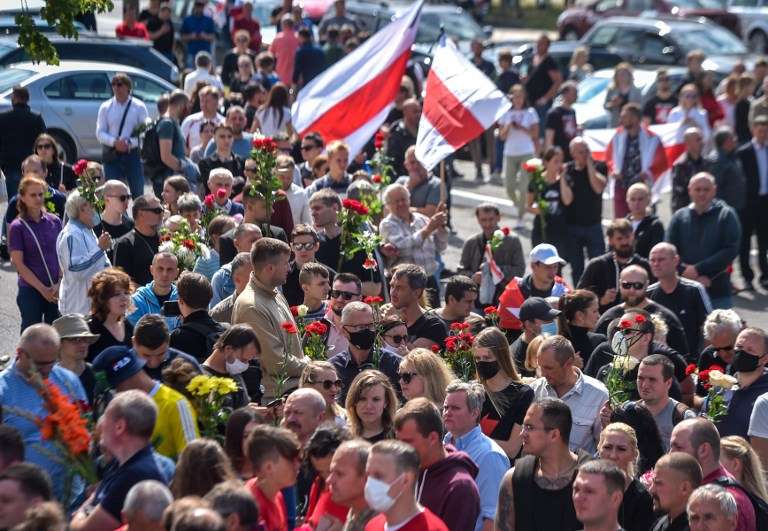The third round of sanctions and restrictive measures imposed last December against the Belarusian regime, including its president Lukashenko, following the fraudulent elections in August 2020, have not stopped the suppression in the country and led to any dialogue between the government and the opposition.
The sanctions which include a travel and asset freeze aimed at sending a message to the political and economic actors that their support to the regime comes at a cost.
Asked at today’s press conference (21 January) by The Brussels Times about the Commission's assessment of the effectiveness of the sanctions, Peter Stano, lead spokesperson for external affairs of the EU, replied that the sanctions are an open-ended process and that it will take more time for them to have an effect.
He confirmed that for the time being “bad things” are happening in Belarus with continued suppression of the opposition and media. An example of the regime’s crackdown on press freedom was the arrest last week of Belarusian Journalist Andrei Aliaksandrau along with his partner, Irina Zlobina. They are both being held in Minsk detention centres and have been remanded in custody for two months.
According to the Civil Solidarity Platform, Aliaksandrau is a long-standing champion of human rights in his native Belarus and across the OSCE region, through his activities on the board of the Belarusian Association of Journalists, in freedom of expression NGOs Index on Censorship and Article 19, and in managing communications at the Platform.
Their detention follows the arrest last month of four reporters from the Press Club, an organization that provides resources and training for independent media. Blogger Ihar Losik (a consultant social media manager with RFE/RL) has been detained now for more than 200 days and has been on hunger strike for the past 30 days.
The US Embassy in Belarus and the European Federation of Journalists (EFJ) decried the arrest of Aliaksandru and called on the Belarusian authorities to protect fundamental freedoms.
Are there any independent media left in Belarus?
“Despite long years of repressions and being ranked among the worst in the world in press freedom rankings, Belarus has preserved a vibrant independent media scene, mostly online with several exceptions in print and semi-exiled radio and TV broadcasters,” Maryia Sadouskaya-Komlach, Belarusian journalist and Program Coordinator at Free Press Unlimited, told The Brussels Times.
How do Belarusan citizens get their daily news?
She says that Belarusians are still very dependent on TV which includes free offer of Russian pro-Kremlin channels. “To learn news about things in Belarus they go to independent sources either on their websites or, especially since dozens independent news outlets are blocked since August 2020 elections, to the social media.”
In late 2020, sociologists claimed that the trust to independent sources bas grown significantly over the year. This can be explained by their coverage of the COVID pandemic in the first half of the year when the government tried to play down the severity of the disease and the elections and their aftermath in the second half.
Among social media and messengers, the most popular among 25-55 year old news consumers are Facebook and Telegram. Younger generations tend to VK.com and TikTok, older are present on OK.ru and Viber. Twitter is popular among largely Minsk-based middle class but is rarely used as a news source.
She explains that some of the crackdown on the creative and activist sector in Belarus might be part of the regime’s response to the EU sanctions.
“The opposition’s strategy so far was to demand harsher sanctions but they were disappointed by the EU’s moderate approach to this. They also want the EU member states to investigate torture and beatings that happened after elections and to keep pressure on the government to start the nation-wide dialogue on the transfer of power.”
M.Apelblat
The Brussels Times

